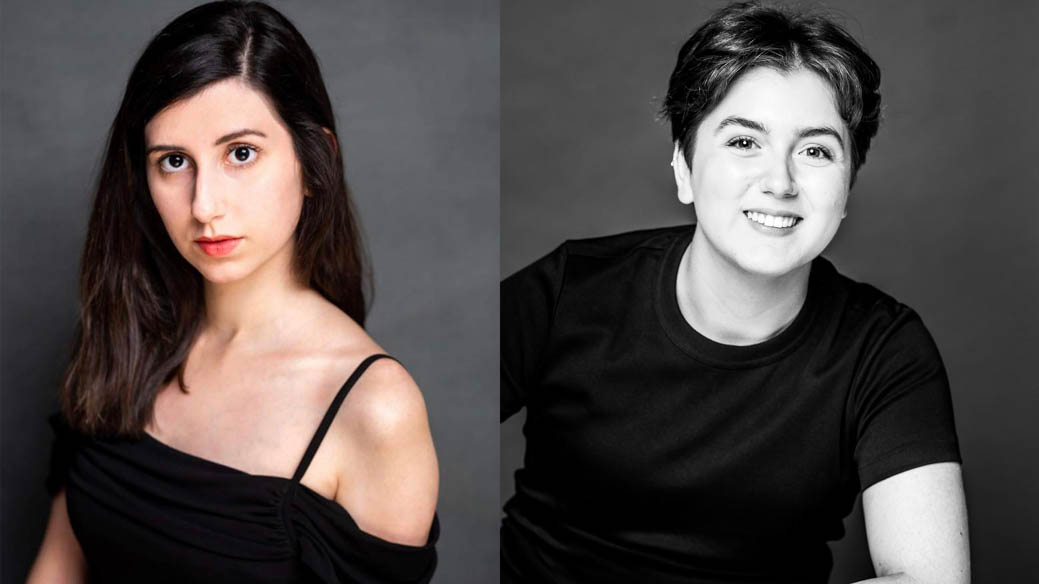Behind the scenes of Theatre and Drama Studies
What are those theatre kids doing? Elif Coşkun and Nell Senkevich share an inside look at the program.
For many students, Theatre Erindale is a space to showcase years of acting training. As casts and crews get ready for the winter semester of performances, most graduating students prepare to part ways with the Theatre and Drama Studies (TDS) program. Amid online shows and distanced rehearsals, this year’s graduating TDS class has been through it all. Still, non-theatre students often wonder: what is TDS?
TDS is a collaborative program between UTM and Sheridan College. The professional acting training each student receives translates to their work on the Theatre Erindale stage and beyond. Unlike any other program at UTM, TDS provides a mixture of practical actor training and academic teaching. Through the UTM campus, each student is required to complete drama courses that focus on the historical, cultural, and research-based components of theatre. On the Sheridan side, students take studio classes taught by acting professionals. These courses focus on movement, dialect coaching, realism, animal work, the actor’s presence, and much more.
While the mixture of academic and practical training may appear strenuous, it is this blended approach that draws students to the program and allows them to fully understand the practice of acting. According to fourth-year students Elif Coşkun and Nell Senkevich, TDS has not only been a program but a life experience, too.
“[The] first and second year[s] are about building technique,” said Coşkun. “We took everything slow and did things like tension release, breathwork, and movement work to build the basis for acting. In the third and fourth years, we get into things like dance, singing, and stage combat that allow us to grow on those basic techniques.”
While these courses make up the Sheridan portion of the program, Senkevich noted that many of the UTM courses bring forward the “worlds of each play” and allow the option to pursue minors such as English—an aspect that not many acting programs offer.
Additionally, TDS provides options for students to learn alongside professionals in the industry. Both Coşkun and Senkevich had the opportunity to take the Shaw Festival course, a two-week intensive summer half-credit where students participate in the creation of repertory theatre—which follows a specific repertoire of work for a set time frame—at the acclaimed Canadian Shaw Festival in Niagara-on-the-Lake.
“I really loved the Shaw Festival course because we got to talk to artistic directors, actors, directors, and so many other people in the industry,” said Senkevich. “We had opportunities to do writing workshops and scene studies, and because I took [the course] in the summer of 2020, my classmates [and I] really got to explore what scenes could look like online. It was challenging, but it actually proved to be really important in [my] third year when we had to create our shows on Zoom.”
Another course that both Coşkun and Senkevich hold near and dear to their development as actors is “Realism,” a Sheridan course taught by the program’s Head of Acting Melee Hutton.
“Realism really gave me a huge insight on what acting is really about,” said Coşkun. “I think one of the first things Melee said in the realism class was ‘you can’t really act without knowing.’ To learn proper acting, we [have to] create our own perceptions and characters out of what actually happened during the time these plays were written.”
Outside of theatre and acting work, TDS students master the art of time management. The dual-campus program places an emphasis on professionalism, which includes attendance at all rehearsals and classes. Coşkun mentioned that the third and fourth years spend up to 24 hours of rehearsal per week, which often becomes a challenge.
“It’s so great to have the UTM section of things, but for four years, your Tuesdays and Thursdays are dedicated to Sheridan courses,” Coşkun said.
However, amid the hefty schedules, TDS students share a strong sense of community and support each other in the pursuit of becoming better actors, better creatives, and better people.
“TDS has challenged me to explore the ways in which I can create,” Senkevich said. “All the [students in different] years get opportunities to work with each other [to] write, act, and direct. I find that community is really important to have within a program, and we really value that.”
For people who have seen TDS students gather in Deerfield Hall, you know that these students have a positive energy and passion for art that is rambunctious and contagious. While the program enrollment is based on auditions, many other opportunities exist for students outside of the program to get involved with theater on campus. To find out more, check out the many drama courses offered at UTM. And feel free to say hello to a TDS student next time you are in Deerfield hall!

